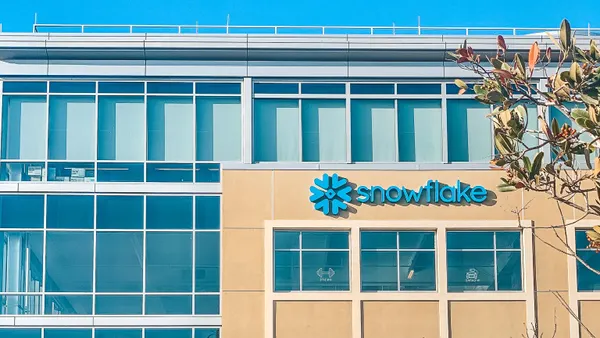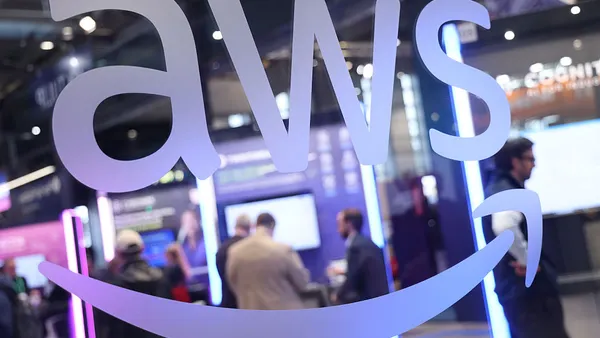Dive Brief:
- Amazon's databases will run entirely free from Oracle by the end of 2019, Amazon Web Services CEO Andy Jassy told CNBC in an interview.
- Nearly 90% of Amazon's databases that previously ran on Oracle will migrate to Amazon DynamoDB or Amazon Aurora by January, Jassy said, and 97% of "mission critical databases" will migrate by the end of 2019.
- Earlier this month the company moved its data warehouse onto an Amazon service, Redshift, and away from Oracle, Jassy said.
Dive Insight:
Amazon is sending clear signals to competitors, even the ones it used to rely on, that it wants to own the cloud and database management markets.
The cloud company is used to being on the receiving end of Oracle CTO Larry Ellison's comments but during Jassy's re:Invent keynote, he made some "defensive" comments in reference to other cloud competitors.
Somewhat surprisingly, Andy slipping in many references to competition in keynote opening. Sounds defensive. I'm unsure if it's necessary. The delta between AWS, holistically, vs Azure and Google Cloud Platform, is still very large, popular narrative notwithstanding. #reinvent
— Lydia Leong (@cloudpundit) November 28, 2018
But even with migration off of Oracle heavily underway, Amazon still hits snags.
Earlier this year, an Amazon warehouse in Ohio experienced a "temporary situation where the database was very slow" as a result of too many savepoints created. It was all because the team was still using Oracle's savepoints management even though the warehouse had migrated to Aurora.
Amazon's trip up highlighted the difficulty of database software migration because if Amazon is struggling, every other company probably is.
Migration, even when it's complete, can disorient the teams working with the new database, as showcased by the Ohio warehouse. The "things you took for granted have changed," said Rick Greenwald, senior director analyst at Gartner, in an interview with CIO Dive.
But if a company runs into a problem mid-migration or even post-migration, it's important to keep in mind "just because you're the first person in a situation doesn't mean you have a problem," said Greenwald.














